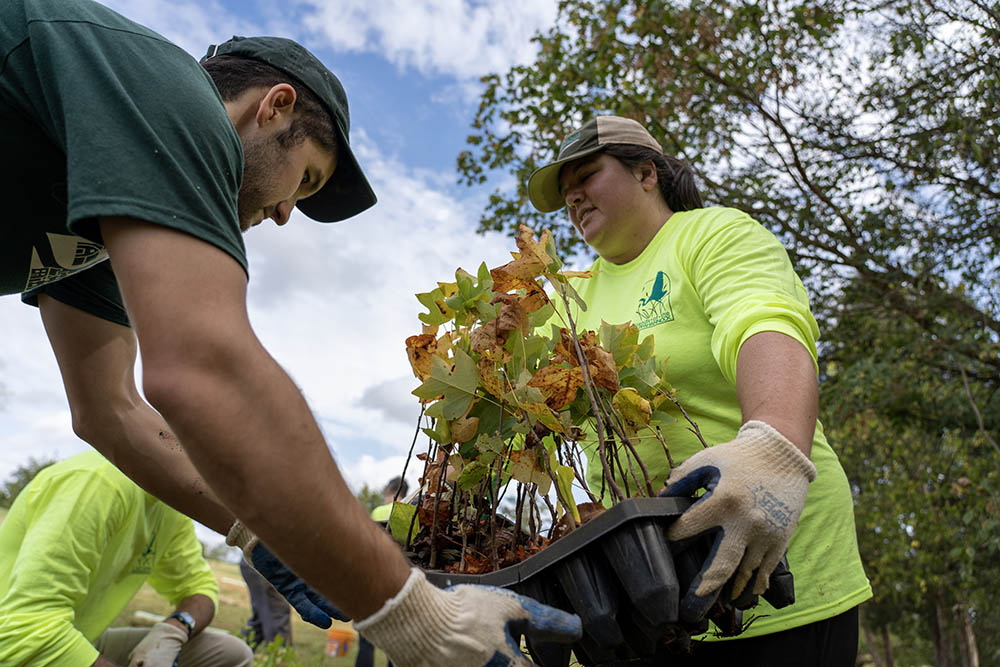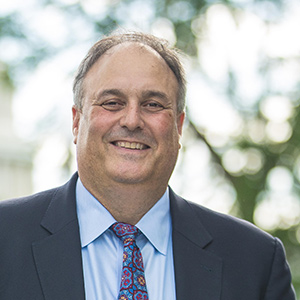
Dear Friends,
Rumor has it, the idea for Earth Day was first announced at the Airlie Conference Center in Fauquier County, spurring a national and international movement to make the environment a major focus. That was 1969, and today, 50 years later, much progress has been made on those initial concerns about air and water pollution, loss of wildlife and endangered species. But, as we are reminded daily, that progress has been offset by population growth and consumption around the world. Arguably, we are overwhelming the earth’s natural systems at a global scale.
Around the same time that Sen. Gaylor Nelson was cooking up the idea for Earth Day over at Airlie, people in Fauquier and eight adjoining counties were cooking up a plan for a new organization that would promote better planning toward a more sustainable future in the region. That organization was founded in 1972 as The Piedmont Environmental Council, and since then, our focus has been consistent and persistent. With an eye keenly focused on land planning, conservation, and restoration, we have pushed for state, regional and federal strategies to improve air and water quality and natural habitats, battled ill-conceived development and infrastructure projects, and worked to preserve historic resources for decades.
What differentiates PEC from other conservation and environmental organizations is that we strive to empower people to act, either individually or together, toward a more sustainable region. We have a big, bold vision for great communities in a conserved and restored landscape of farms and forests that runs from theBlue Ridge down crystal clear streams and rivers to a thriving Chesapeake Bay.But we know that only happens if each and every one of us participates. PEC’s programs are designed to help each of us do what we can on our own land and in our own communities.
In the northern half of Virginia, 70 percent of the air pollution comes from transportation. To be blunt, too many of us drive, by ourselves, to almost every activity in our lives. PEC has led the effort to plan communities in which people can walk or ride bikes to jobs, restaurants, and services. While carpooling, transit and electric vehicles can all help, reducing the number and duration of car trips is the single best way to improve air quality and reduce contributions to global warming. Other actions PEC has championed that reduce air pollution include home weatherization, distributed solar electric generation that doesn’t risk open space and important habitat, and properly-sited offshore wind energy and industrial-scale solar energy on recovered coal mines and other brownfield sites.
From backyard gardens to large landscape-scale buffers along a river’s edge, PEC programs help citizens restore native habitats for birds, insects, and other wildlife, plant rain gardens to reduce stormwater runoff, and replace invasive plants with native plants that require less water and work to thrive. We help farmers with the costs of fencing out livestock and planting miles of forest buffers. And we are working to create pedestrian and bike path connections between urban areas and the rural areas in all of our communities, like the Emerald Ribbons plan in Loudoun County.
If you’re looking for something even closer to home, the simple act of planting a tree can make a huge impact. A mature white oak can absorb 11,000 gallons of water per year, provides habitat and food for upwards of 600 species of animals, as well as shade and reduced erosion from storm events. During their growth period, white oaks store large amounts of carbon. If each of us took the time to plant and care for a few new trees each year on our own properties and volunteered to help plant trees around the region, that alone would improve our part of the world.
In the end, 50 years has taught us that the cumulative actions of 8 billion people makes a difference to environmental quality. What we choose to do every day can make a difference. So on this 50th anniversary year for Earth Day, join me in committing to make every day an Earth Day!
Sincerely
Chis Miller, President
The Piedmont Environmental Council
cmiller@pecva.org

This letter was featured in our Spring 2020 member newsletter, The Piedmont View.
